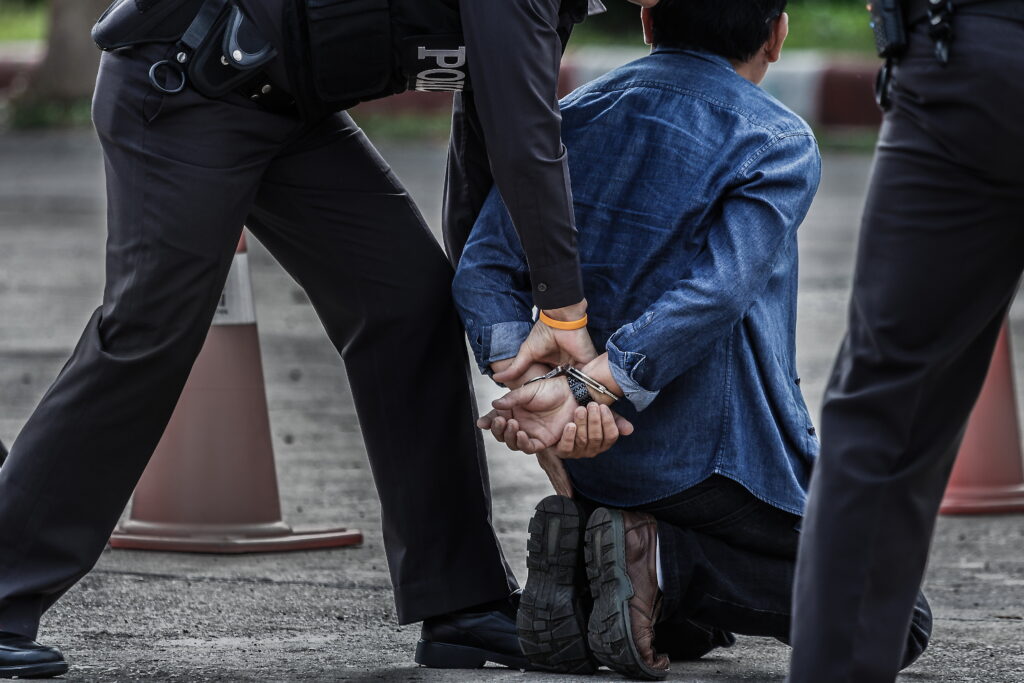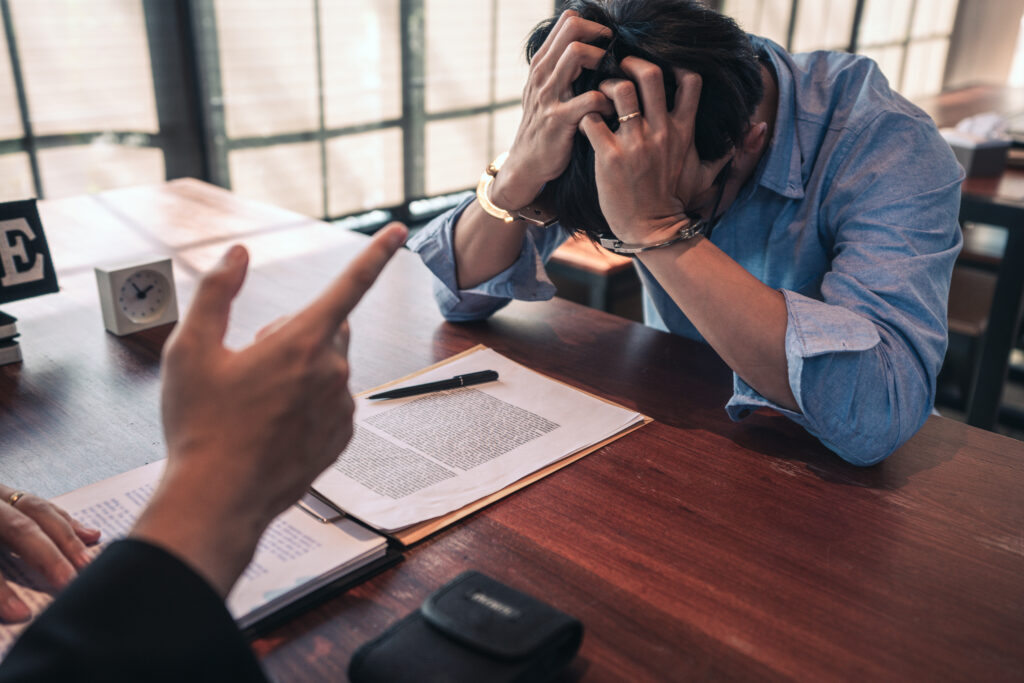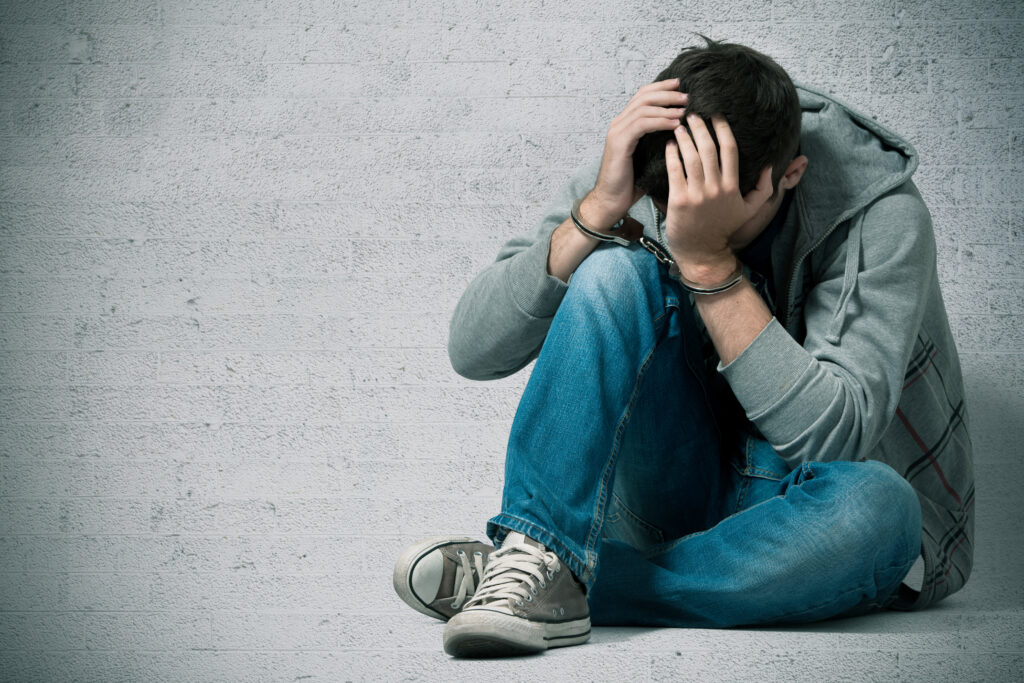California’s treatment of a first-time criminal offender depends upon various factors, including the specific charge that the individual is facing, as well as the statutory penalties that are in place.
If you are currently facing a first-time criminal charge in California, never wait to hire a knowledgeable criminal defense lawyer in California. Your attorney can determine whether you are eligible to raise one or more legal defenses to your charge and, if so, advocate those defenses on your behalf at trial. Additionally, your lawyer can negotiate with state prosecutors in pursuit of a favorable plea deal on your behalf when appropriate.
Who Has the Burden of Proof in a Criminal Case?

In a California criminal case involving a first-time offender, the government must establish several key elements to prove the accused’s (defendant’s) guilt beyond a reasonable doubt. These elements are crucial for ensuring that the accused receives a fair trial and that justice is served.
- Evidence of the Crime —The government must present evidence that the alleged crime occurred. This can include physical evidence, such as weapons or stolen property, eyewitness testimony, or electronic records.
- Identification of the Defendant —The government must establish that the defendant is the person who committed the alleged crime. This may involve witness identification, DNA evidence, or other forms of forensic analysis.
- Intent — For certain crimes, such as theft or assault, the government must prove that the accused had the intent to commit the crime. The prosecution attempts to establish this through the defendant’s actions, statements, or other circumstantial evidence.
- Motive — While not always necessary, establishing a motive can strengthen the government’s case by providing a plausible explanation for why the defendant committed the crime. Motive evidence can come from witness testimony, the defendant’s past behavior, or other sources.
- Corroboration of Evidence — In some cases, the government may need to present corroborating evidence to support its case. This can help establish the credibility of witnesses or the reliability of physical evidence.
- Admissibility of Evidence — The government must ensure that any evidence that they present in court is admissible under the rules of evidence. This means that the evidence must be relevant, reliable, and obtained legally.
- Procedural Requirements — The government must also adhere to procedural requirements throughout the criminal justice process. This includes properly charging the defendant, conducting a fair trial, and respecting the defendant’s constitutional rights.
- Burden of Proof — Finally, the government bears the burden of proving the defendant’s guilt beyond a reasonable doubt. This is a high standard of proof that requires the government to convince the jury or judge that there is no other logical explanation for the evidence presented.
Potential Penalties Upon Conviction of a First-time Criminal Offense in California
When the court convicts someone of a first-time criminal offense in California, they may face a range of potential penalties depending on the severity of the crime and other factors. These penalties can have significant consequences that affect various aspects of the individual’s life.
- Fines — One of the most common penalties for a criminal conviction is a monetary fine. The amount of the fine can vary widely depending on the offense and other factors. In some cases, fines can reach thousands of dollars, placing a substantial financial burden on the convicted individual.
- Probation — Instead of or in addition to incarceration, a court may impose probation as a penalty for a first-time criminal offense. Probation typically involves certain conditions that the individual must follow, such as regular check-ins with a probation officer, maintaining employment or attending school, and avoiding further criminal activity.
- Community Service — The court may require some first-time offenders to perform community service as part of their sentence. This can involve tasks such as picking up litter, volunteering at a nonprofit organization, or participating in other community-based programs.
- Restitution — If the offense resulted in financial harm to a victim, the court may order the offender to pay restitution. This can include reimbursing the victim for medical expenses, property damage, or other losses incurred as a result of the crime.
- Counseling or Treatment Programs — In cases involving drug or alcohol-related offenses, the court may require the offender to participate in counseling or treatment programs as part of their sentence. These programs aim to address underlying issues that may have contributed to the criminal behavior and reduce the likelihood of future offenses.
- Driver’s License Suspension — For certain offenses, such as DUI (Driving Under the Influence), the court may suspend the offender’s driver’s license for a specified period of time. This can significantly affect the individual’s ability to travel and fulfill daily responsibilities.
- Jail Time or Imprisonment — In more serious cases, a first-time offender may be sentenced to jail time or imprisonment. The length of the sentence depends on factors such as the nature of the offense, the defendant’s criminal history, and any mitigating or aggravating circumstances.
The potential penalties upon conviction of a first-time offense in California can have long-lasting consequences. If you’re currently pending a criminal charge, an experienced criminal defense attorney can help you understand your rights and options throughout the process.
Common Legal Defenses to a First-Time Offense in California

When facing a first-time criminal offense in California, there are several common legal defenses that individuals may employ to challenge the charges against them. These defenses aim to raise doubts about the prosecution’s case and, if successful, can lead to a reduction in charges or even a dismissal of the case.
- Lack of Evidence — One of the most straightforward defenses is to argue that the prosecution lacks sufficient evidence to prove guilt beyond a reasonable doubt. This can involve challenging the credibility of witnesses, questioning the validity of physical evidence, or pointing out inconsistencies in the prosecution’s case.
- Alibi — An alibi defense involves providing evidence that the defendant was elsewhere at the time the crime was committed and, therefore, cannot have been responsible for it. This often requires corroborating witness testimony or documentation, such as receipts or surveillance footage, to support the defendant’s whereabouts.
- Self-defense — In cases involving violence or assault, the attorney for the accused (defendant) may raise a self-defense argument if the defendant believed they were in imminent danger of harm and used reasonable force to protect themselves. The key is to demonstrate that the defendant’s actions were necessary and proportionate given the circumstances.
- Mistaken Identity — A mistaken identity defense asserts that authorities have wrongly identified the defendant as the individual committing the crime. This can occur due to factors such as poor lighting, witness misidentification, or similarities in appearance between the defendant and the actual culprit.
- Duress or Coercion — If the defendant committed the offense under duress or coercion, they can argue that their actions were not voluntary. This defense typically requires evidence of a credible threat or imminent harm that forced the defendant to act against their will.
- Entrapment — Entrapment occurs when law enforcement officers induce someone to commit a crime they would not have otherwise committed. To raise an entrapment defense, the defendant must show that law enforcement coerced or persuaded them to engage in criminal behavior that they were not predisposed to commit.
- Insanity or Diminished Capacity — In rare cases, defendants may assert an insanity or diminished capacity defense, arguing that they were not mentally competent at the time of the offense. This defense typically requires expert testimony and evidence of the defendant’s mental state at the time of the crime.
By using these and other legal defenses, individuals facing first-time criminal charges in California can seek to protect their rights and obtain a favorable outcome in their case.
Pleading Guilty Versus Taking a Criminal Case to Trial in California
Deciding whether to plead guilty or take a criminal case to trial in California is an important decision that requires careful consideration of various factors. Both options have potential consequences that can affect the outcome of the case and the defendant’s future.
Pleading Guilty:
- Potential Benefits — Pleading guilty can result in a more lenient sentence compared to what the court may impose if the case goes to trial and the court finds the defendant guilty. In some cases, prosecutors may offer plea deals that involve reduced charges or lighter penalties in exchange for a guilty plea.
- Faster Resolution — Pleading guilty can lead to a quicker resolution of the case, sparing the defendant and the court system the time and expense of a trial. This can be particularly appealing for defendants who want to put the legal proceedings behind them as soon as possible.
- Certainty of Outcome — By pleading guilty, defendants know exactly what they are facing in terms of penalties, whereas going to trial involves uncertainty and the possibility of a more severe sentence if a judge or jury finds the defendant guilty.
Taking a Criminal Case to Trial:

- Presumption of Innocence — Going to trial allows the defendant to exercise their constitutional right to a trial by jury and to assert their presumption of innocence. It puts the burden of proof on the prosecution to prove the defendant’s guilt beyond a reasonable doubt.
- Defense Strategies — Trials provide an opportunity for the defendant and their attorney to present evidence, cross-examine witnesses, and challenge the prosecution’s case. This can be advantageous for defendants who believe they have a strong defense or who want to challenge the legality of the evidence against them.
- Possibility of Acquittal — Going to trial offers the chance of being acquitted if the prosecution fails to prove the defendant’s guilt. An acquittal results in the defendant being cleared of all charges and avoids the consequences of a guilty plea, such as a criminal record and potential incarceration.
The decision to plead guilty or take a criminal case to trial in California depends on the specific circumstances of the case, the strength of the evidence against the defendant, and their individual priorities and goals. Consulting with an experienced criminal defense attorney can help defendants understand their options and make informed decisions about how to proceed.
What Happens at a Criminal Court Trial in California?
In a criminal court trial in California, the defense plays a crucial role in advocating for the accused and challenging the prosecution’s case. Here’s what happens from the defense perspective:
- Preparation — Before the trial begins, the defense attorney thoroughly prepares by reviewing evidence, interviewing witnesses, and developing a strategy to defend the accused. This may involve analyzing police reports, conducting investigations, and consulting with experts.
- Jury Selection — During the trial, the defense attorney participates in the jury selection process, known as void dire. The defense aims to select jurors who are impartial and open-minded, thereby ensuring a fair trial for the accused.
- Opening Statement — The defense attorney delivers an opening statement outlining the defense’s theory of the case and highlighting key points that they will present during the trial. This sets the stage for the defense’s argument and provides jurors with an understanding of what to expect.
- Cross-examination — The defense has the opportunity to cross-examine the prosecution’s witnesses, challenging their testimony and credibility. Through strategic questioning, the defense attorney aims to expose inconsistencies, biases, or weaknesses in the prosecution’s case.
- Presentation of Evidence — The defense presents its own evidence and witnesses to support the accused’s innocence or raise doubts about the prosecution’s case. This may include eyewitness testimony, expert opinions, or physical evidence that supports the defense’s theory of the case.
- Legal Arguments — Throughout the trial, the defense attorney makes legal arguments to challenge the admissibility of evidence, object to improper questioning, and protect the accused’s constitutional rights. This ensures that the trial proceeds fairly and in accordance with the law.
- Closing Argument — In the closing argument, the defense attorney summarizes the evidence presented during the trial and reiterates the defense’s theory of the case. The goal is to persuade the jury that there is reasonable doubt about the accused’s guilt and to secure a favorable verdict.
- Verdict — After both the prosecution and defense have presented their cases, the jury deliberates to reach a verdict. If the jury finds the accused not guilty, the court acquits and releases the defendant. If the jury finds the accused guilty, the defense may pursue post-trial motions or appeals to challenge the verdict.

Speak with an Experienced California Criminal Defense Lawyer Today
If you are currently pending a first-time criminal charge in California, you need to have experienced legal counsel on board in your case. A knowledgeable California criminal defense lawyer can formulate one or more legal defenses on your behalf, answer your questions, advocate for you in court, or negotiate with state prosecutors. Your lawyer can also help you make intelligent and informed decisions throughout your case in pursuit of the best possible outcome.